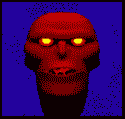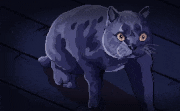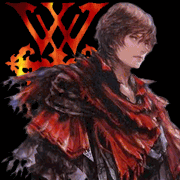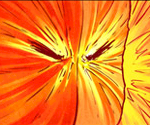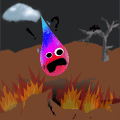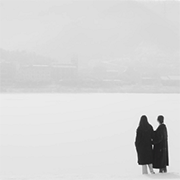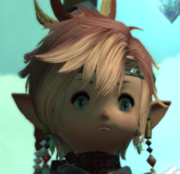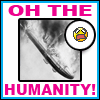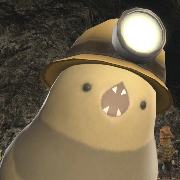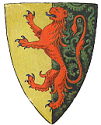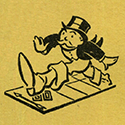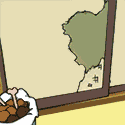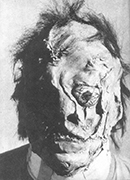|
 I'm catching up on this thread and noticed a recommendation for Carthage Must Be Destroyed, so I thought I'd chime in with The Ghosts of Cannae: Hannibal and the Darkest Hour of the Roman Republic by Robert L O'Connell. Obviously the book spends most of its time on the second Punic War, though each is covered to an extent. It's a relatively easy read, going into the tactics and order of battle without being too seriously technical. I'm not sure a hardcore military history buff would be satisfied with it, but a casual reader like myself enjoyed it. The emphasis is on the battle at Cannae (obviously) and the ramifications it had on the morale, strategies, tactics, and survivors (the titular 'ghosts') on both sides.
|
|
|
|

|
| # ? May 13, 2024 23:40 |
|
Amused to Death posted:Does anyone know of any books portraying normal daily life in the Soviet Union I liked Francis Spufford's Red Plenty which is a fictionalized but well referenced account of the Soviet Union in the 50s and 60s, with about two dozen chapters on different areas. Ambulocetus posted:So, how about the War of 1812? I'm looking for some kind of an overview. bavarian posted:Adam Zamoyski's "Moscow 1812: Napoleon's Fatal March" gives a good overview on the relations between the major continental European powers in the last years prior to 1812. That, and it's a good (albeit, considering the death toll, a somewhat depressing) description of Napoleon's fatal march against Russia.
|
|
|
|
I assume he means the War of 1812 in North America, Canada/Britain vs. the US.
|
|
|
|
ChetReckless posted:
Thanks for this, it sounds right up my alley. Has anyone read any of Anthony Everitt's biographies? I've had my eye on the book he wrote on Cicero for a little while, but I saw he has ones on Hadrian and Augustus, too. Are they any good?
|
|
|
|
Chamberk posted:Can anyone suggest any history books that would be appropriate for a middle school reader? I'm working on a curriculum list for a summer reading program, and we're trying to get nonfiction for the younger levels, but it's proving difficult. Farewell to Manzanar covers a teen's experience in Japanese internment camps during WWII. Ket posted:Just went through this thread in about an hour hoping for recommendations about the beginnings of the unions (preferably available on Google books), as my Google-fu is weak. Triangle by Eric Von Drehl deals with the Triangle Shirtwaist factory fire. The fire led to a pretty big push towards unionization.
|
|
|
|
Ambulocetus posted:So, how about the War of 1812? I'm looking for some kind of an overview. Pierre Berton's War of 1812, that's all you need
|
|
|
|
Ambulocetus posted:So, how about the War of 1812? I'm looking for some kind of an overview. Which war? The big one or the sideshow? Russia Against Napoleon: The True Story of the Campaigns of War and Peace by Dominic Lieven Memoirs of Sergeant Bourgogne (1812-1813) by Sergeant Bourgogne, a diary by a witness to this horrific retreat. The Battle of Borodino: Napoleon Against Kutuzov by Alexander Mikaberidze, an excellent technical military history of the great battle. Moscow: Moscow 1812: Napoleon's Fatal March by Adam Zamoyski or 1812: War with America by Jon Latimer, a narrative history, focusing mostly on the Canadian perspective. Pierre Berton's War of 1812 by Pierre Berton, a cheap re-issue of the Canadian historian's 2 volume work. More of a narrative account than scholarly, but splitting the narrative between Canadian (and British) and Yankee perspectives. The War of 1812: Conflict for a Continent by J. C. A. Stagg, more of a general history of the total experience, maybe the best intro to the topic aside from Berton's. The Incredible War of 1812: A Military History by J.M. Hitsman. A technical military history from the Canadian perspective. I've found that the best books on this war are Canadian.
|
|
|
|
I liked Carthage Must Be Destroyed as well. What clicked with me even more was the much broader but in my mind better written, well researched and super entertaining (although unimaginably titled) Rubicon: The Triumph and Tragedy of the Roman Republic. http://www.amazon.co.uk/Rubicon-Triumph-Tragedy-Roman-Republic/dp/034911563X
|
|
|
|
Play posted:I liked Carthage Must Be Destroyed as well. What clicked with me even more was the much broader but in my mind better written, well researched and super entertaining (although unimaginably titled) Rubicon: The Triumph and Tragedy of the Roman Republic. http://www.amazon.co.uk/Rubicon-Triumph-Tragedy-Roman-Republic/dp/034911563X Coincidentally I just started this book yesterday. I'm excited to hear that its good.
|
|
|
|
Play posted:I liked Carthage Must Be Destroyed as well. What clicked with me even more was the much broader but in my mind better written, well researched and super entertaining (although unimaginably titled) Rubicon: The Triumph and Tragedy of the Roman Republic. http://www.amazon.co.uk/Rubicon-Triumph-Tragedy-Roman-Republic/dp/034911563X Just the other day I finished the same author's book on the Greco-Persian wars, Persian Fire, and it was fantastic. As you said, Tom Holland manages to make his works exciting and entertaining without sacrificing historical veracity--there were points where I was on the edge of my seat as if I were reading a political thriller or something, despite actually knowing what was going to happen next, being history and all. The attention and work he put into the Persian perspective was terrific as well, not many Persian records from that time period survive and even fewer historians even bother using what little sources there are in favor of focusing on the Greek side entirely, so the parts of the book about the Persian Empire were my favorite. I definitely want to read Rubicon some day, but I think the next Holland I read will probably be In the Shadow of the Sword, about the birth of Islam and the events in the classical world that led up to it, although I'm a little worried about the claims he tries to make (according to reviewers, he tries to argue that Mohammed never set foot in Mecca, among other things)--I prefer my history to be based on fact, they kind of lose me when the author tries to convince me of something. I mean, I get that there's going to be conjecture when you're dealing with history from that long ago, but the reviews make it sound like he wants to convince you, rather than just presenting the evidence for it and letting you come to your own conclusions, which is something that always bothers me. Punished Chuck fucked around with this message at 16:44 on Jan 23, 2013 |
|
|
|
Ummagumma posted:It might be too broad (as it starts in ancient civilization), but David Brion Davis' Inhuman Bondage is a decent starting point. It is very long, but it is also enjoyable to read (and won a Pulitzer!). On the subject of American wars, what's a good one on the Mexican-American War?
|
|
|
|
Does anyone know of any good books about Pre-Islamic Persia? Particularly the Sassanid/Sasanian Dynasty?
|
|
|
|
It might be a long shot, but I'm looking for a history of Bulgars as well as a history on the Turks in Europe (including the time before the Ottoman conquests). Either English or Russian works for me.
|
|
|
|
AdjectiveNoun posted:Does anyone know of any good books about Pre-Islamic Persia? Particularly the Sassanid/Sasanian Dynasty? In the Shadow of the Sword by Tom Holland devotes about sixty pages to discussing Iranshahr. Sasanians, competing religions, Parthians, and Jewish people in Mesopotamia are some of the topics discussed. I'm only a third of the way through, at the New Rome bit of the book. I don't know how much the rest of the book spends time discussing Iranshahr, but looking at the index I see there are bits of that history scattered throughout. It's pretty engaging as well, especially striking since I had bought the book to read up on early Islam. That doesn't much answer your question, but it's currently banging around my mind.
|
|
|
|
Masenkame posted:In the Shadow of the Sword by Tom Holland devotes about sixty pages to discussing Iranshahr. Sasanians, competing religions, Parthians, and Jewish people in Mesopotamia are some of the topics discussed. I'm only a third of the way through, at the New Rome bit of the book. I don't know how much the rest of the book spends time discussing Iranshahr, but looking at the index I see there are bits of that history scattered throughout. It's pretty engaging as well, especially striking since I had bought the book to read up on early Islam. http://www.guardian.co.uk/books/2012/may/04/in-shadow-of-sword-tom-holland quote:I have not seen a book about Arabia that is so irresponsible and unreliable since Kamal Salibi's The Bible Came from Arabia (1985).
|
|
|
|
Tom Holland responded specifically to that piece in The Guardian. I still haven't finished the book, so I can't properly comment on the reviews. As far as I can tell, Holland is examining the current sense from historians that the origin of Islam is shrouded in obscurity.
|
|
|
|
I'm in the middle of reading Romance of the Three Kingdoms. I'm enjoying it a lot, but I'd like to also read an actual history book about the time period, one that doesn't intermix mystical events or author-bias toward particular figures. Does TBB have a recommendation?
|
|
|
|
Any books on the Korean War that someone can recommend to me other than The Coldest Winter?
|
|
|
|
Are there any great books covering the the general time period of early modern warfare in Europe? Basically from the period just prior to the 30 years war to the Napoleonic Wars. I know there are tons of books on each subject individually but I'm looking for something larger.
|
|
|
|
Boondock Saint posted:Any books on the Korean War that someone can recommend to me other than The Coldest Winter? Korean War by Max Hastings Shimrra Jamaane posted:Are there any great books covering the the general time period of early modern warfare in Europe? Basically from the period just prior to the 30 years war to the Napoleonic Wars. I know there are tons of books on each subject individually but I'm looking for something larger. There isn't a lot of single volume texts, probably because the subject is so diverse. That said, here are two books--I've read and can recommend the Black book, and heard good things about Hall. European Warfare 1494-1660 and the Military Revolution by Jeremy Black Weapons and Warfare in Renaissance Europe: Gunpowder, Technology, and Tactics by Bert S. Hall
|
|
|
|
Ambulocetus posted:So, how about the War of 1812? I'm looking for some kind of an overview. After the Overview, I suggest Union 1812 by A. J. Langguth. It has some rich connections from the Revolution to 1812 that I thought helped me to understand that between period far better than most overviews.
|
|
|
|
dokmo posted:Korean War by Max Hastings I didn't think this was quite as good as The Coldest Winter, but it does offer a view of the war from a non US perspective. Hastings has some interesting chapters dealing with the British Army in Korea. I particularly liked the line about suggestions for what the officers should pack, something like "Take a gun, but not your best gun". As if they would have shooting parties on their days off. There were also some chapters dealing with POWs from both sides.
|
|
|
|
What's a good book to read on the French Revolution?
|
|
|
|
ChetReckless posted:What's a good book to read on the French Revolution?
|
|
|
|
ChetReckless posted:What's a good book to read on the French Revolution? Age of Revolution by Eric Hobsbawm, Citizens by Simon Schama, The French Revolution by Thomas Carlyle.
|
|
|
|
coyo7e posted:I'm fond of The Great Cat Massacre, which I found in a toss-out bin outside a used bookstore. That looks cool; thanks for the recommendation, I'd never heard of it.
|
|
|
|
Ket posted:Just went through this thread in about an hour hoping for recommendations about the beginnings of the unions (preferably available on Google books), as my Google-fu is weak. Phillip Dray's There Is Power In A Union Is great for this and its pretty well comprehensive, though it does focus on the formation of Unions in the United States. Unrelated, but [Monsters In America] http://www.amazon.com/Monsters-America-Historical-Obsession-Haunting/dp/1602583145 was a really good book about monsters in fiction and popular culture asserting ideas through US history.
|
|
|
|
PatMarshall posted:Age of Revolution by Eric Hobsbawm, Citizens by Simon Schama, The French Revolution by Thomas Carlyle. Age of Revolution is great but it kind of presupposes a basic knowledge of events already. Hobsbawm writes very accessibly but he's more concerned with explaining causes and effects rather than the actual things that happened, for the most part.
|
|
|
|
PatMarshall posted:That looks cool; thanks for the recommendation, I'd never heard of it. I'll just chime in and say that the Great Cat Massacre is a hugely important book to modern historiography, as one of the early examples of what would grow into cultural history. It's very easy to read, as it's a group of essays on often widely divergent topics with shared themes, rather than a monograph on a single subject. You can take it in very manageable bites and still get a lot out of it.
|
|
|
|
I read 1491 last month and found it to be a pretty awesome book. I think I'll look into 1493 one of these days. Maybe it's a weird or stupid request, but are there any good books that give an overview of the cradles of civilization? Or if that's no good, are there any good introductions for each of them?
|
|
|
|
Any good and interesting books on Napoleon and the Napoleonic Wars? I have been interested in that period lately and I am looking for a good comprehensive book on those subjects.
|
|
|
|
Useless Shotgun posted:Any good and interesting books on Napoleon and the Napoleonic Wars? I have been interested in that period lately and I am looking for a good comprehensive book on those subjects. I strongly recommend The War of Wars by Robert Harvey. It's big, but it's very detailed and written in a nice, almost-narrative tone.
|
|
|
|
Useless Shotgun posted:Any good and interesting books on Napoleon and the Napoleonic Wars? I have been interested in that period lately and I am looking for a good comprehensive book on those subjects. I was recommended The Rise of Napoleon Bonaparte and The Reign of Napoleon Bonaparte by Robert Asprey when I asked in the general recommendations thread. I got them both for Christmas but haven't started them yet so I can't personally speak to them, but they seem to be the highest-rated books on the subject I've seen so I'll go ahead and pass that recommendation to you.
|
|
|
|
Are there any really good books about the Roma?
|
|
|
|
Anyone here read/want to discuss On Killing by David Grossman? It's great and I can't talk about how great it is enough.
|
|
|
|
Can anyone recommend me anything on alchemy?
|
|
|
|
|
Fontoyn posted:Anyone here read/want to discuss On Killing by David Grossman? It's great and I can't talk about how great it is enough. It's not the same book where someone claims that video games are "murder simulators," is it? I keep conflating the two in my mind, but I'm guessing they're not related.
|
|
|
|
Nihiliste posted:It's not the same book where someone claims that video games are "murder simulators," is it? I keep conflating the two in my mind, but I'm guessing they're not related. Most of the book is about killing in combat, psychological trauma etc. The last chapter highlights similarities between the programs we use to condition soldiers to kill and videogames kids play. They're pretty similar.
|
|
|
|
Fontoyn posted:Most of the book is about killing in combat, psychological trauma etc. We had a pretty good discussion about the book going in Goons in Platoons awhile back. http://forums.somethingawful.com/showthread.php?threadid=3454883&userid=0&perpage=40&pagenumber=3 Basically, he excels when talking about psychology, but is pretty bad when he tries his hand at sociology and such. He also completely ignores what Marshall's goals were when he conducted his studies. Some choice quotes, quote:While Grossman's overall points about combat stress/PTSD/etc are good, it's worth mentioning that the SLA Marshall "study" about the whole "less than 25% of U.S. infantrymen in WWII fired their weapons" thing is pretty much bullshit, which undercuts Grossman's line of thought a bit (article from Parameters supporting that fact). The whole point of Men Against Fire was to serve as a jumping off point for convincing the insanely overly conservative Army to start devoting more time for combat oriented training for draftees as opposed to the WWII method of a lot of PT, some marksmanship, and field exercises, not to serve as an accurate history. It had to be framed as a "history" otherwise the brass would've told him to go piss up a rope with his new-fangled "theories" about how to train troops in this "art of combat" thing as opposed to the good ol' fashioned 'Murican training of tons of push-ups and shooting slow fire at paper at 500 meters that had worked for every generation of soldiers before them . So his goal was laudable, but the issue comes with people failing to recognize the flaws in his "methodology" (and I use that term loosely) and therefore accepting it at face value as accurate history, when it was really a (good) opinion masquerading as history to get his point across to the decrepit ancient old retards that were running the Army. quote:These are both great books. However when he starts to dip into sociology in On Killing (mostly the stuff concerning media/video games and urban drug violence) I feel like his argument is flawed and slightly off base when compared to the great stuff he writes using psychology as a basis rather than sociology. quote:Agreed. He also coauthored a book entirely about that. I found it pedantic, strident and terribly repetitive. His time would be much better spent trying to educate the American public and media about the realities of combat stress so they can understand things like this a little better. For someone with such valuable views he seems to somehow have missed the chance to really help a lot of people and get his face and name out there (really, how many times could he have appeared on the 24/7 news networks over the last 11 years). TLDR: He's really good when he talks about the psychology behind killing and being trained to do so, but he's way off when he starts pointing fingers at video games for the reason behind large scale urban violence.
|
|
|
|

|
| # ? May 13, 2024 23:40 |
|
End Of Worlds posted:Can anyone recommend me anything on alchemy?
|
|
|



